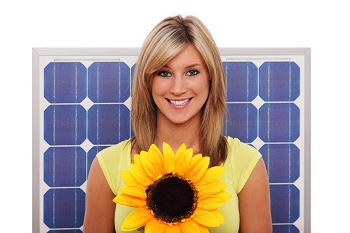The government decides that it wants to encourage everyone to grow potatoes. So they pass a law saying that if people will grow their own potatoes, they will subsidize it using tax dollars generated by other companies and workers. Then they mandate that in order to make growing potatoes appealing to more people, you will have to buy potatoes from individuals at the same price you sell them.
You still have the costs of everything, but no margin, since you are forced to let these individual farmers utilize your entire infrastructure for free. And if you can't sell their potatoes, well, you'd better.
That doesn't work economically, right?
No, it doesn't. But it's been the oncoming economic train wreck of solar power for four decades. Instead of using taxpayer money to save electricity - by optimizing old, energy-wasting buildings - we have subsidized rich people getting solar panels on their houses. And it was a good deal for home owners because they got state and federal subsidies and then the electric company is forced to buy back excess electricity at the same rate they sell it.

Canadians have been similarly duped but whereas we get techno-fever-dream ads with shiny panels (watch that efficiency drop after about two weeks of dust builds up) they get Solara - SunnyMoney's GoSolar Girl. Win, Canada.
Utilities, of course, never had a choice in the matter. Utilities are a hyper-regulated 'unregulated' business, so they can do just about nothing without government approval. They can't raise rates or own transmission lines or, in California, even sign long-term contracts, but they have been allowed to pass along costs for their green energy programs - so poor people who can't afford solar panels in California are still paying $1.3 billion in annual costs for solar power, and that is just from three utility companies.
Solar customers "avoid charges, not just for energy, but also the costs of the transmission and distribution system. That's why we say it is not sustainable," Dan Skopec, vice president of regulatory affairs for San Diego's Sempra Energy, told Christopher Martin and Mark Chediak at the San Francisco Chronicle.
It's always been wrong, but such a small amount of money it was silly to worry over. However, when the administration decided to start spending tens of billions on solar and wind subsidies, the problem really became obvious. Every time a new panel system goes up, taxpayers lose more money. And it's the environmental gift that never stops costing.
What would have been better? It seems obvious, but it lacked the aggressive lobbying paid for by environmentalists: If we really cared about saving electricity, we would have instead taken much less money, equivalent to three years of those solar costs, and weatherized every old, inefficient apartment building in California. Problem solved.
Oklahoma has decided to try and take the first step and stop the madness. In April, they passed a solar surcharge law which would allow regulated electric utilities to impose a surcharge on customers - who have basically been unregulated utilities - who solar panels or wind turbines and use the grid. No more free lunches. In opposition were, of course, environmentalists and solar power companies.
Why is that good? Because it is obviously the only way alternative energy will ever be viable. We keep being told by environmentalists that solar and wind energy are working, that they are blowing the doors off of natural gas in terms of cost and is as clean as nuclear without the drama, so it seems strange they would object to showing it works by not having individuals be some special class of unregulated, subsidized, individual utility company. If solar is as viable as claimed, people no longer need to be able to sell electricity at the same rate they buy it, nor do subsidies make sense. If the "It will pay for itself in 5 years" claims we always see are true, Napa Valley homes spending $1.45 million for a solar power installation don't need their farm hands chipping in state taxes for $319,000 of it, with a federal subsidy on top of that, and then also paying higher costs for regular energy.
The rest of the country should follow suit. There is no miracle of capitalism happening as long as poor people pay for solar installations on rich homes - because cost is no object when people are not footing the bill themselves. When someone really makes solar power work, then you will see companies rushing into it and then we can get rid of fossil fuels once and for all.




Comments